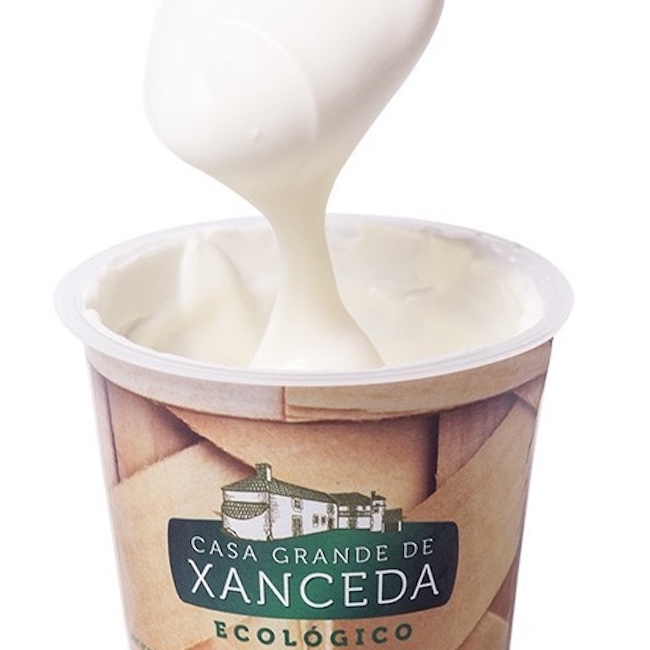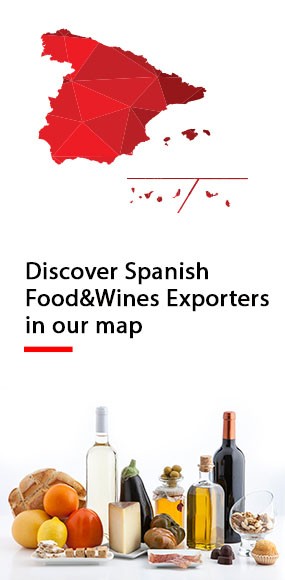.png.transform/rendition-xs/image_image%20(1).png)
Yogurt Made in Spain, Creamy Craftsmanship
Spain has a great tradition in the production of this dairy dessert, and today the most renowned companies are committed to the best raw materials and quality in production
So, what's a creamy, dreamy, dairy delight that everyone around the world loves? Yep, you guessed it – yogurt! It’s a staple in diets everywhere. While yogurt’s origins go way back to the Middle East, the real game-changer happened in Spain.
It was a family of Sephardic Jews, the Carassos, who, at the end of the second decade of the 20th century, began producing yogurts in Barcelona with a decidedly commercial vocation. The company was named after the nickname of Daniel, the son of the family: Danone. Yep, the same Danone that’s now famous worldwide. Although it started being sold in pharmacies as a healthy food, this product of coagulated milk obtained by lactic fermentation through the action of the bacteria Lactobacillus bulgaricus and Streptococcus thermophilus quickly became a hit in stores The terrible war history of the 20th century eventually caused Danone to leave Spain, but this essential chapter in the history of yogurt remained forever linked to the history of this country.
Fast forward to today, and Spanish yogurt is all about quality. Take Pastoret, for example.Based in La Segarra, in the province of Lleida (Catalonia), their motto has been to produce with "naturalness and craftsmanship" since the company was founded in 1992 by the Pont family. They produce yogurts from the milk of Friesian cows "that are lovingly cared for, especially during their entire lactation period, which usually lasts 10 months after giving birth," a process followed by two months of the so-called "dry period," essential for the animal's well-being and to prevent diseases. At Can Gel, the farm where the animals live, "each cow has its name, which, along with the fact that they graze freely, makes them happier and more relaxed, being more productive due to their emotional well-being," explains the company. Happy cows mean better yogurt, right?
Pastoret makes all kinds of yogurts: natural cow's milk yogurt, goat's milk yogurt, and fruity yogurts with ingredients like strawberries, berries, and lemon. They’ve even got organic lines and kefirs, plus protein-packed drinkable yogurts. Over the past decade, their products have spread across Europe, Dubai, and even Hong Kong.

Different locations, similar projects
In the same vein as Pastoret, other artisanal yogurt companies, such as Casa Grande de Xanceda, are also working. This project began in 1968 when the couple formed by Felipe Fernández Armesto and María Victoria Fernández España settled with their first cows in Mesía (A Coruña, Galicia), one of the most important dairy regions in Spain. Initially focused on milk, the grandkids turned it into an organic yogurt haven by 2002, with their first yogurts hitting the market in 2004. Aside from the yogurts, the whole project and the rest of the products they make are organic too.
"The formula is simple. It's a farm where everything is well cared for. Our yogurt factory is just 10 meters from the milking parlor of the cows, which are descendants of those first settlers from the '60s. It takes just 48 hours for the yogurts to reach the market, ensuring quality," explains Sara Torrero, Marketing and Corporate Social Responsibility Manager at Casa Grande de Xanceda. “The secret to our super creamy yogurt? Ultrafiltration. We take two liters of milk and make it into one liter of concentrated goodness. Each cup has double the milk!” they explain. In addition to Spain, Casa Grande de Xanceda yogurts can be found in Portugal and Andorra.
Spain’s yogurt magic happens in areas with loads of dairy animals, ensuring local production. This is the case with La Ermita Cantabria (Casar de Periedo, Cantabria), Goshua (Iraizotz, Navarra), Elvira García (El Barraco, Ávila, Castile-León), or Sacramenia (Sacramenia, Segovia, Castile-León). All of them make yogurts from local cow, goat, sheep, and even donkey milk!

The success story of frozen yogurt made in Spain
And let's talk about the frozen yogurt craze. About 15 years ago, frozen yogurt exploded onto the scene, and Spain was all in. Brands like Llaollao, founded in 2009 in Denia (Alicante, Valencian Community), makes its frozen yogurts from a mix composed of 53% Galician skimmed milk and 33% natural, fresh, artisanal yogurt of Cantabrian origin. Llaollao has establishments in Portugal, Switzerland, or France, among other European countries.
A year after Llaollao, another brand, Smöoy, also emerged in Denia, contributing to popularizing frozen yogurt in Spain and expanding to countries like Morocco, the United Kingdom, China, and Saudi Arabia. Spain’s passion for yogurt – from the classic to the frozen – proves this dairy delight isn’t just a health food; it’s a tasty treat we can’t get enough of!

